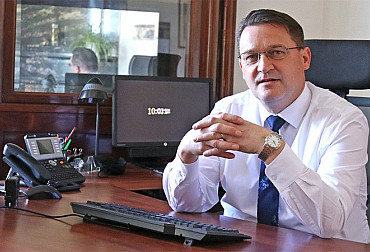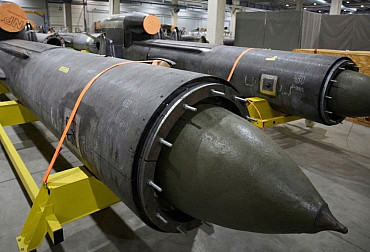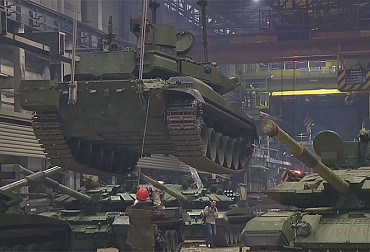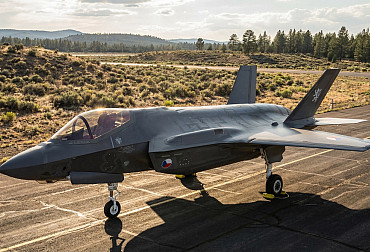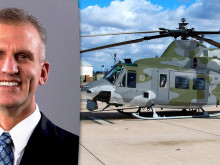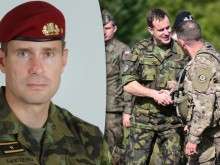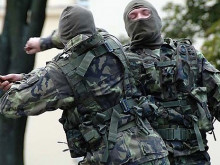Soldiers have a hard time coping with life in the civilian world, but it works, the director of the center for veterans believes
At the end of 2016, the first Community Center for War Veterans opened in the Czech Republic. This created a place for meetings and help in Brno. According to its director Karel Černoch, the biggest obstacle to helping military veterans is themselves. But many things could also be improved at the level of the state and the system itself. We talked to one of them about the current state of assistance to former fighters and challenges for the future, who also runs the Brno Community Center.
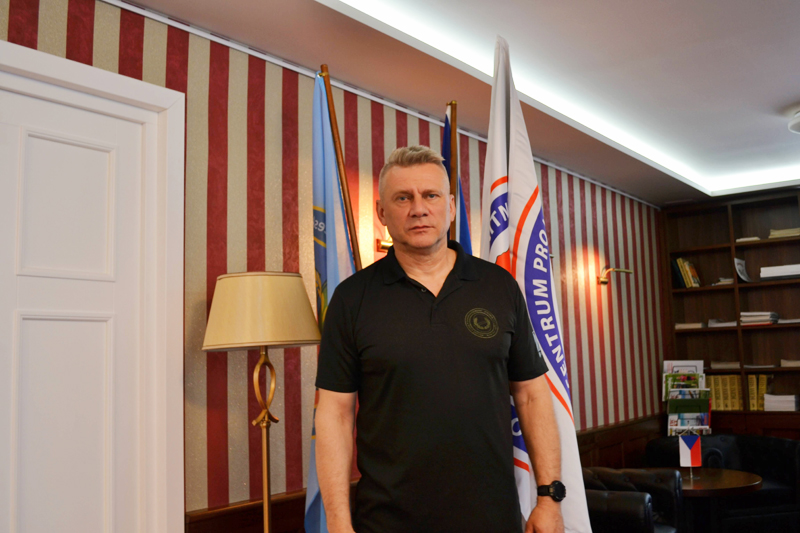
When did the idea of a community center for war veterans originate?
Community care for war veterans is nothing new, as is the idea of Community Centers. Already after the First World War, we had the Jedlička Institute, which prepared veterans for civilian employment and worked on their reintegration. Legionary units worked very well in the country, where the need to take care of each other was based on the fact that retired legionaries returned home after many years and had nothing at all. They only had each other. It was also about property issues such as loan offices, banks, credit unions and others. The legionaries created a huge fortune that practically served community purposes. Subsequently, they lost it and the return of property never fully occurred, but that is another question.
And what is the story of the Community Center for War Veterans in Brno?
Needless to say, soldiers and retirees still existed, but community centers did not. After certain activities, the idea to create a community center took hold in 2015 and at the end of 2016 we opened. The Community Center in Brno was a pilot project of the Ministry of Defense. They were looking for a form of how it could work. In the end, the choice fell on the Brno Military Hospital. Thanks to this, we can use the equipment of a military hospital and their specialists for the care of veterans. We have the service of a psychologist, we have a chaplain and others. Psychological assistance works anonymously on the basis of passing on contacts and information and subsequent coordination.
So what activity does the community center perform?
Currently, the Community Center for War Veterans (KCVV) stands on several basic pillars. One of them is that we have social housing here. We are able to accommodate for a limited time those who find themselves in an emergency or it is used by veterans who give lectures and the like. Thanks to the connection to the military hospital, we also know, for example, that a veteran will appear after a stroke or accident and a family must come to see him. Other activities that serve to return veterans to society include all kinds of assistance and care for veterans, the creation of a space for meetings, meetings of associations and other community activities. We also organize international events so that they can meet retirees from other countries. It is also the return of veterans to the civilian environment, resocialization, training and education.
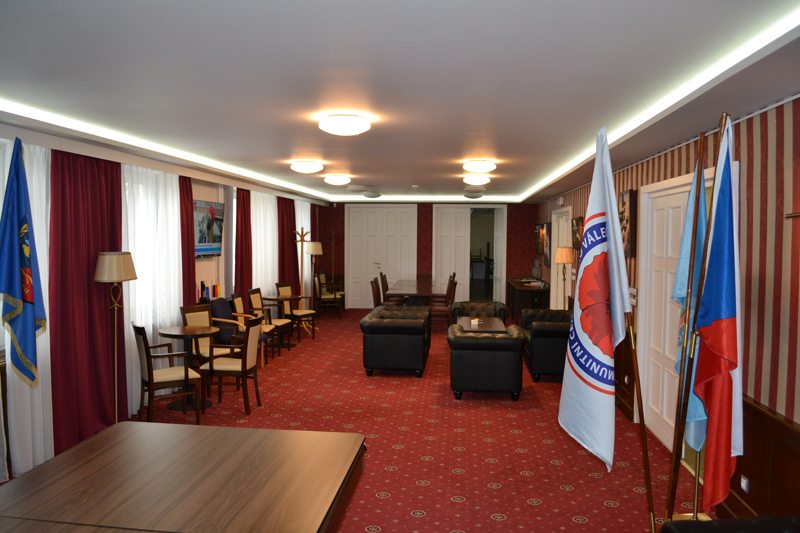
There are two other community centers outside Brno. One is in Olomouc and the other in Prague. How unique are they compared to neighboring states?
This is nowhere around us. Slovakia has neither one nor a hotel, just nothing. In Poland, after a cross-border project we did, a single center was established in Warsaw. Austrians organize meetings in restaurants, but do not have community centers. There are clubs and family centers near the units, which work in some way in our country, but often the soldier does not want to go back to the barracks. Someone can also be fired by the Army, and he is stuck and bitter. In Austria, it is good that you can come to the center for blue berets as a veteran. There is a connection with the Bundesheer, the Academy of Defense. This could possibly be improved in our country, but I think we have and do a lot for veterans. I dare say that care in the Czech Republic is at a very high level thanks to tradition. You just need to be interested in yourself.
Preparations for civilian life could be improved
What does the assistance provided to outgoing soldiers in the field of civilian re-employment look like? Is it sufficient?
There are counseling centers that can be used to make a person able to get a job. Retraining courses, training. There are portals where you can find dozens of job positions. Often, resorts intersect when a soldier goes to work for the police or municipal police and vice versa.
Do soldiers receive sufficient information about possible employment in the labor market when leaving the Army?
They get a lot of materials. The difference is whether they just throw it away or actually read it. Maybe now I will say something that veterans will hate me for, but if you ask my colleague a police veteran, she will state that military veterans are doing very well. Yes, it can always be better. There is a big difference in that care in the regions, locally. In Ostrava, they are even considering the construction of a monument. We also initiated this in Brno, but after a political change, the debate often ends.
The problem is the war veteran himself. He really has to want help and get involved. Many of them expect that having served they have accomplished something and do not have to do anything more. They lived in the system and expect another system to work the same way. We strive for enlightenment, both among veterans and the public, but without the help of thousands of other veterans through their behavior, it is not possible and will not work.
Can it also play a role in the fact that after leaving the Army a veteran thinks he will be in high demand and thanks to his experience employers will hire him right away?
That's exactly the mistake. If he writes a CV, he must translate it from "military" to "civilian". He can't write that he was a gunner-operator. What about that in civilian clothes? He must realize that thanks to this he has, for example, managerial skills, he can work systemically, conceptually and thanks to the fact that he was a gunner-operator, he pursues the goal. I'll take it from personal experience. When I left the Army, no one at the time knew what a war veteran was, nor did I say it anywhere. I was a newbie in civilian clothes and I had to work my way up to the level of stager. The Army personnel officers should prepare for that. If you say „I'm a veteran - who is more“, you will soon slip into self-deception and then even alcohol, drugs, gambling, because you feel unrecognized. Here come other aspects and activities of the centers, the Ministry of Defense and others.
And are the Army personnel officers preparing them enough for that?
I can't say that. They should. Maybe there will be another buried dog. It's a human resources question. The concept of care for the year 2021 to 2025 is currently being prepared. We have given a lot of comments about it. I don't like a lot of things. I do not like the inconsistency of communication centers, the structure, management, and especially the methodology and synchronization, the interconnection of activities. There should be greater uniformity, elements of single management should be created. Unified consensus, symbolism and more. If there was a consensus, it would be much easier to enforce the benefits and more, the community and other care itself would look different. How many times do veterans go against each other.
Community centers as prevention
Former soldiers often have service and various benefits, why continue to care?
War veterans are the same social group as, for example, an ethnic minority that has its social problems. Another strong argument may be the radicalization of veterans. In a way, they can be dangerous to the society. Just neglect a little thing. It is necessary to look at it from another perspective. The mission of community centers can be in prevention. Prevention and preparation are greatly underestimated.
According to surveys, the Czechs believe in the Army and trust is still growing. But why do we meet with the opinion that soldiers did not fight for the country on foreign missions?
This is not about the need to fight somewhere. Unfortunately, the wars are all around. Only we think the times are calm. These people have their roles there and operate there within the framework of international agreements, fulfilling our international obligations. I was in Iraq when it came to helping UN organizations. We guarded warehouses, food, millions of people in refugee camps. We mainly provided humanitarian aid.
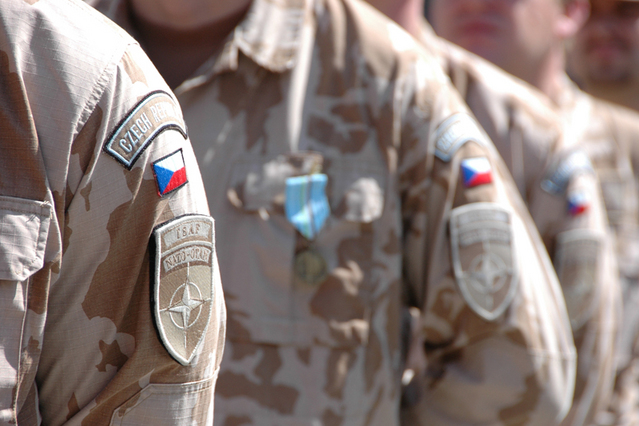 Picture: According to surveys, the Czechs believe in the Army and trust is still growing. But why do we meet with the opinion that soldiers did not fight for the country on foreign missions? (illustration photo) Ministry of Defense of the Czech Republic
Picture: According to surveys, the Czechs believe in the Army and trust is still growing. But why do we meet with the opinion that soldiers did not fight for the country on foreign missions? (illustration photo) Ministry of Defense of the Czech Republic
Some have retirement pension but not all. It is said that he has earned, but he could also die there every day. What good will it be to you to earn money and make money if you earn it? And what is enough, how much? This is very subjective and misleading. I can say for myself that often the money I received as a diet was not enough and I had to spend more for accommodation and the like.
And how could a possible negative view of war veterans be improved?
This is the role of the Ministry of Defense, the Czech Army, other ministries and politicians. Last but not least, the role of associations and veterans themselves. It's about experience. If someone grew up and was raised under his mother's skirt and dad's umbrella, he will never understand a veteran. You will not live those experiences, both positive and negative, elsewhere and you will not explain them to someone who lived happily at home. It is difficult to compare the two worlds, the way of thinking. Here we can get to the extreme where neither of them wants to tolerate a different opinion. Unfortunately, we confuse democracy with anarchy and easily evaluate something we know nothing about.
In addition, the military is also about prevention, preparedness. When they do well, they talk, but then floods and other troubles come. Suddenly there must be action and there are firefighters, police and soldiers. Soldiers fulfill the international obligations of our state, they represent the citizens. The Czech Republic does not live alone.
The state will give something, but it would not be possible without sponsors
How autonomous are you and how much power does the Ministry of Defense and the Army of the Czech Republic have over you?
We are not completely autonomous. The community center is part of a military hospital, but we are not under control, that is a strong word. The military hospital is part of the Ministry of Defense, but also operates as a medical facility within the region. The setting is such that there is subordination, but also a piece of autonomy, rather continuity, coherence, coordination, cooperation. We carry out activities so that we are part of both the civilian sphere and the military. We also do activities for other ministries and institutions, schools and the like. It is good that the necessary dose of autonomy is maintained and I can step down from the position of the director of the KCVV with clear principles. We work according to an approved plan, which is based on years of experience in community care, according to clear guidelines and rules.
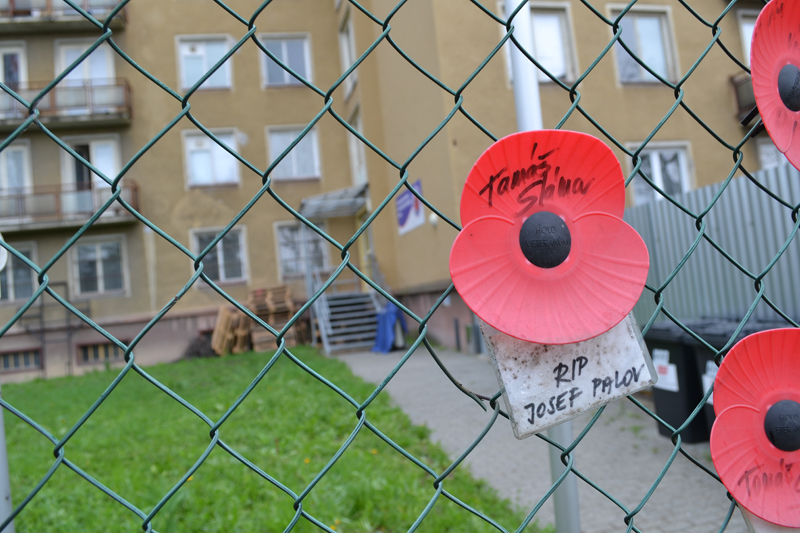
I assume you also receive funding from the ministry. Will it cover operations and activities?
We receive a financial basis from the ministry and the hospital, but it would not be possible without partners, sponsors and volunteers. For example, those social housing would be unthinkable. Unfortunately, covid has made it impossible to organize events that help us generate funds that have been very good in recent years. We work on volunteering. Community service must be done with the heart. The work is constant and cannot be terminated by a covid.
What can the future of KCVV look like in the Czech Republic? Are other such places being considered?
I don't want to promise or predict anything, but my idea would be to create centers in places where there were historically large garrisons and there is a large number of veterans. It is a question of conceptual solution. We will see in what form the new concept will be adopted. I hope that the establishment of other community centers and community care for members of uniformed corps will be enshrined there. I would really like everyone to think of it as all uniformed corps, and the care was broad-spectrum, inter-ministerial, and there were changes that we proposed and presented as changes in laws, organizations, and so on.











